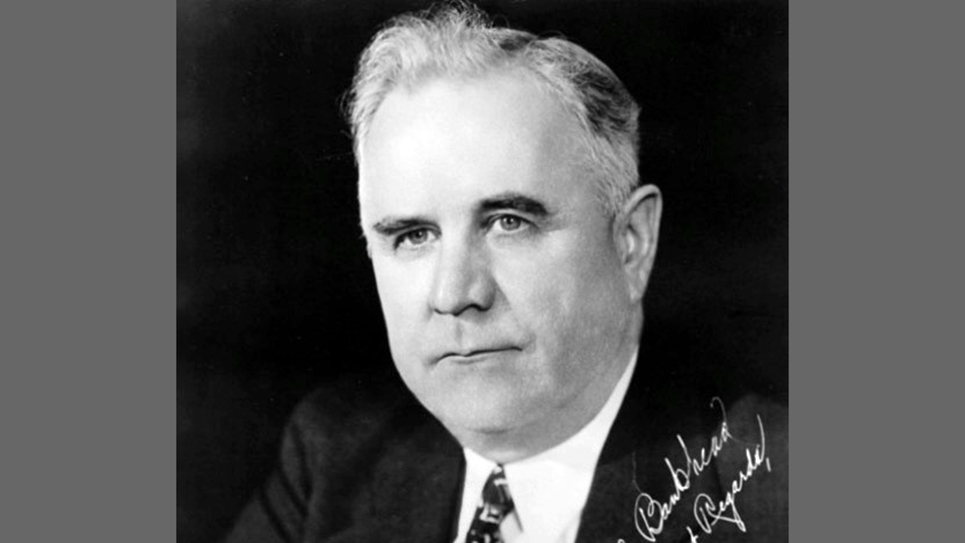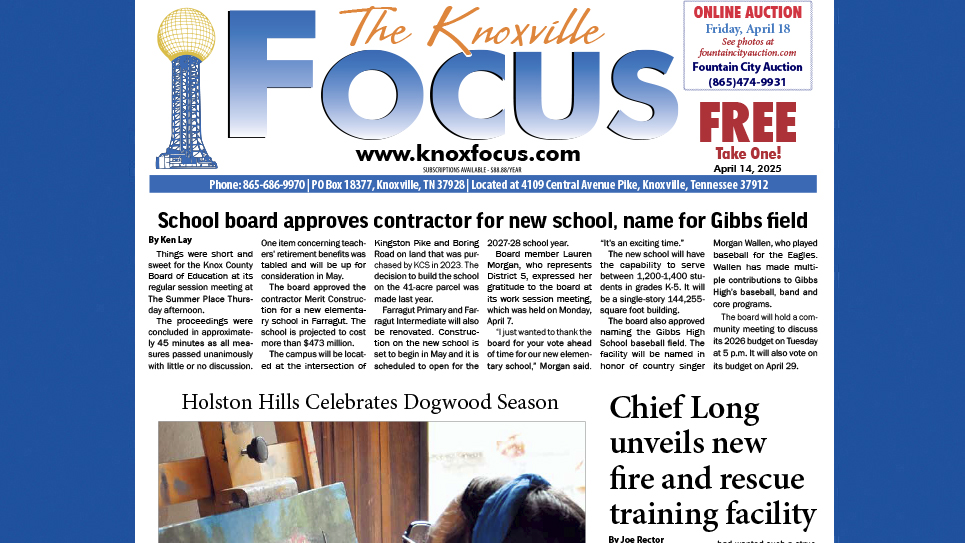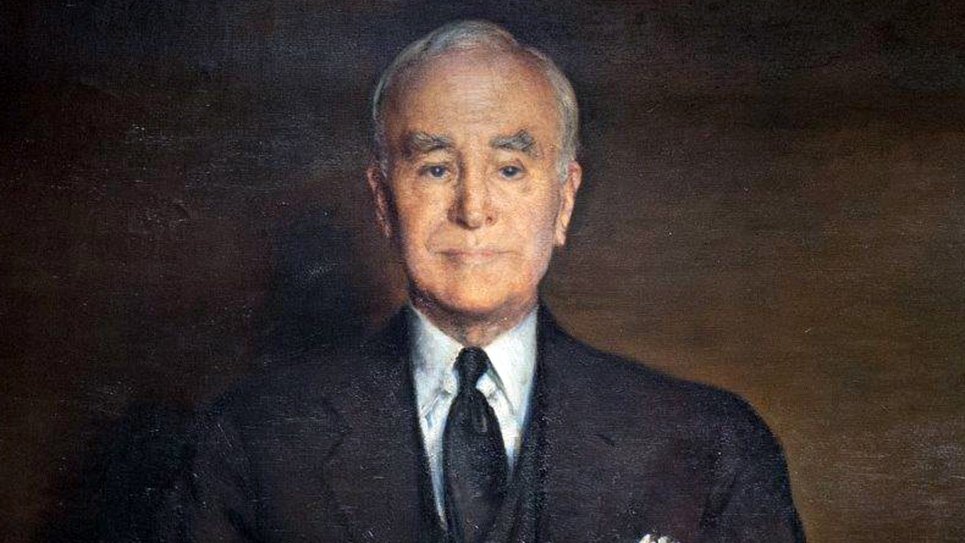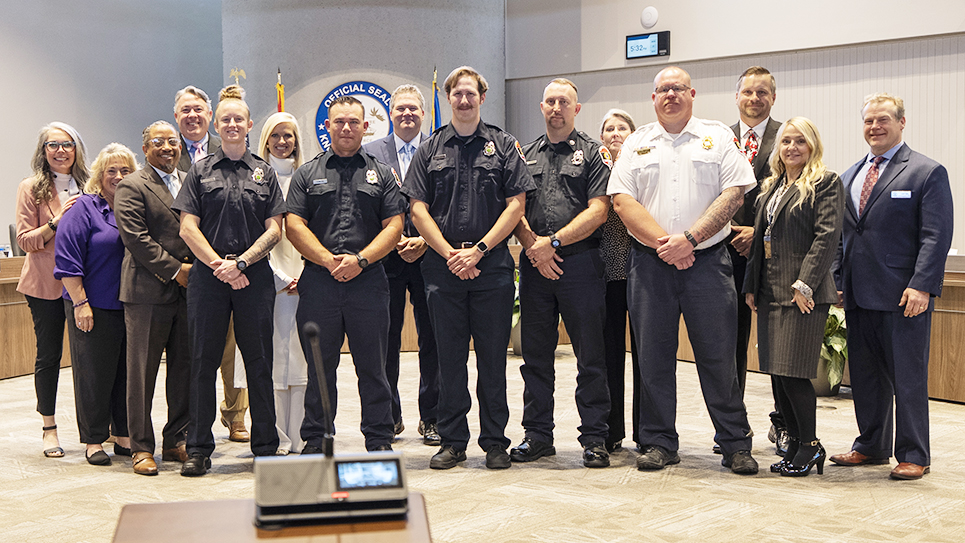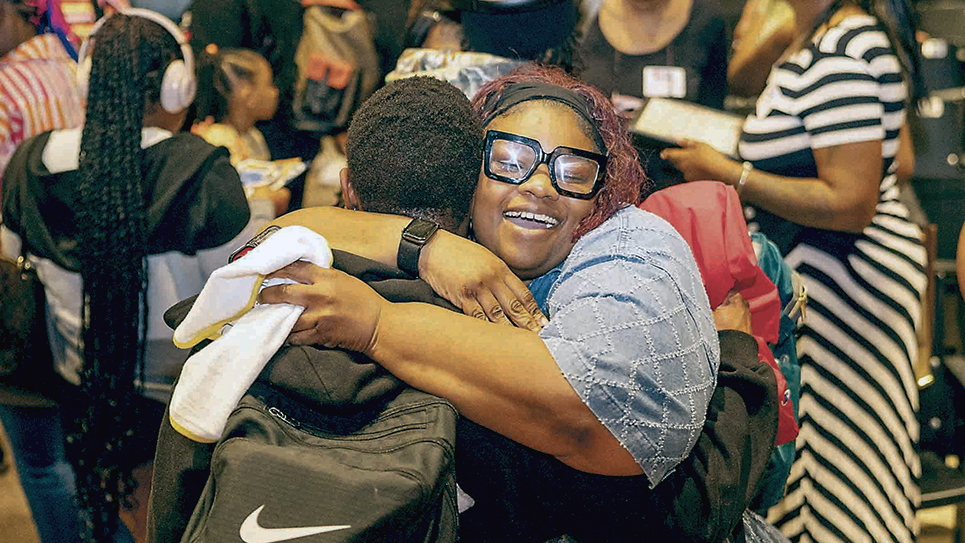By Ray Hill
Noah M. Mason of Illinois looked like precisely what he was: an old schoolteacher. Diminutive in stature, white-haired and frequently with a stern expression etched into his face, Noah Mason served for twenty-six years as a congressman from Illinois. Mason referred to himself as “pudgy,” but he sported bushy brows and glasses which gave him a rather owlish appearance. Columnists Joseph and Stewart Alsop described Mason as a “small, brisk, genial silver-thatched” fellow who was “kindly, friendly, unassuming, and altogether sincere.” Congressman Hugh Scott of Pennsylvania, a one-time Chairman of the Republican National Committee and future U.S. senator, thought Noah Mason was “likeable” and “friendly,” but also labeled the Illinois representative as an “obstructionist.” While in Washington, Mason regularly walked two miles to his office daily.
Devoted to his wife, Cora, and three children, Noah Mason disliked being away from his family. According to his biographer, Mason tried hard to make up for absences through family activities like picnics, going to the movies, walks, and sporting events. Mason liked gardening and loved raising flowers and reading. Wherever he had his home, Noah Mason surrounded it with “a variety of flowers, shrubs and trees.”
Mason was a Republican and a staunch conservative. His longevity in office gave him seniority, which was rewarded with a seat on the powerful House Ways & Means Committee. When the former congressman died, one editorial remembered Mason as, “a leader, a counselor,” as well as “a teacher’s teacher.” The Knoxville News-Sentinel published an editorial noting Mason’s passing and recalled the congressman as “an ag’iner,” but also one who “pursued an unveering course.”
When he announced his decision not to run for another term, Congressman Noah Mason told his colleagues, “I plan to become a missionary to the liberal heathen on the Hill . . .preaching the gospel of conservatism to those who will listen.”
“They may yet be saved,” Mason opined., “to a happier future in which taxes will go down and not always up; in which the national debt will grow smaller and not bigger, in which the army of bureaucrats will get their proper comeuppance.”
When Noah Mason realized following the 1960 election that there was little possibility for the GOP to win the House and for him to chair the House Ways & Means Committee, he opted to retire. “I am past eighty,” Mason told a reporter. “I have put in 13 years. . .Maybe I have had my share. I just want a few years to myself.”
If Noah Mason regretted never ascending to the chair of the House Ways & Means Committee, he confessed to one other regret: never having returned to visit Wales, where he had been born.
Mason continued to enjoy the cottage he and his wife Cora kept on the shore of Lake Geneva and the former congressman continued swimming past eighty.
The News-Sentinel editorial acknowledged Mason was all too easily dismissed as a mere “obstructionist,” the paper noted the congressman “firmly believed in his course, and it was not necessary to agree with him to appreciate his tenacity, his consistency and his usefulness as a general opposer.”
The editorial stated Congressman Noah Mason “never got far, either” with his favorite cause, a desire to have a “clean” rewrite of the nation’s tax laws and “eliminate the discrepancies and discriminations and vagaries.” Had Mason been able to accomplish that, the News-Sentinel said “he would have deserved stature as a national hero, whatever he thought and said about other things.”
Born the twelfth of thirteen children in Glamorganshire, Wales, Mason’s family immigrated to Illinois where his father worked as a coal miner and farmer. Young Noah quit school at fourteen, but his mother, seeing something in her son, stayed after him to get an education. And education became his career. At twenty-two, Noah Mason was the principal of the Jones School in Oglesby, Illinois, a post he held for five years. Eventually, Noah Mason became the school superintendent in Oglesby where he served for thirty-two years. During eight of those years, Mason was also a member of the Oglesby City Council. Later, he served six years as a member of the Illinois State Senate. It was Mason’s first race for the state Senate in 1926 that he lost, the only defeat he ever suffered in a long political career.
Although personally opposed to drinking, Mason’s response to prohibition was to vote to repeal it because a majority of the people he represented had voted for repeal in a referendum. Mason said he felt strongly elected representatives should “follow the Jefferson and Lincoln theories of democracy by voting in accordance with the wishes of their respective districts, setting aside their own personal views on the matter.” Noah Mason was a firm believer that representatives of the people had a duty to abide by the decision of the governed.
Mason demonstrated his prowess as a campaigner when he ran for Congress in the Republican primary and defeated a judge and popular mayor for the GOP nomination to replace an incumbent who had died. Mason won his first election in 1936, an otherwise terrible year for Republican candidates when President Franklin Roosevelt had been reelected in a landslide. Alf Landon, the Republican presidential nominee, had carried only Maine and Vermont while FDR swept everything else.
It was also during the 1936 campaign Noah Mason showed he was a loyal friend and a shrewd judge of character. While incumbent Congressman John Buckbee was ailing, other candidates openly announced or “explored” running, including Judge Harry Reck of LaSalle County. On the very same day that Reck announced his own candidacy inside the Republican primary, Mason released a blistering statement. Mason hailed the service of Congressman Buckbee and said the incumbent was one of the best representatives Illinois had ever sent to Congress. “When Congressman Buckbee feels that, because of ill health, he can no longer properly represent this district in Congress, then, and not until then, I will consider becoming a candidate to succeed him.”
After having won the primary, Mason campaigned hard throughout the district. During the campaign, Noah Mason was injured in a car accident where the car caught on fire. Mason suffered a broken leg while his driver, a doctor, had some broken ribs, but the doctor held his hand on the future congressman’s leg to prevent complications in the fracture.
Representing a more rural district where farmers were an important constituency, Noah Mason quickly learned to tend to the needs of his people. Congressman Mason never relented in his criticisms of Franklin Roosevelt’s New Deal and many of its warriors. Of Secretary of Agriculture Henry Wallace, Mason snapped, “Wallace and his kind” hoped to surrender “private enterprise and private initiative to experiment with some form of collectivism.”
As a congressman, Noah Mason believed in the rights of the states and opposed centralizing all power with the federal government. Mason continually assailed the New Deal program, which Harry Hopkins once described as “tax and tax, spend and spend, elect and elect.” Congressman Mason verbally assailed Hopkins, head of the New Deal relief program, as the individual responsible for taking a relief program and turning it into “the most powerful political instrument of partisan advantage ever devised in the United States of America.” During the 1944 campaign, Noah Mason accused Harry Hopkins of having condoned, if not actually encouraging “intimidation, bribery, and wanton violation of the Corrupt Practices Act.”
Nor was Congressman Noah Mason much impressed by Roosevelt’s “brain trust.” Mason thought the brain trusters were “outspoken agnostics who boast the fact that they do not believe in God.”
Mason was a constant presence on the House floor needling New Dealers in general and Franklin Roosevelt in particular for their failure to keep their promises.
Congressman Mason popped up from his seat on the Republican side of the aisle like a Jack-in-the-box to say the New Deal had failed to solve the country’s domestic problems.
The Illinois congressman noted Roosevelt had promised in his 1932 campaign to balance the country’s budget. Mason wryly said FDR had proceeded to throw the country out of balance “to the tune of about five billion dollars per year.” Roosevelt, Mason reminded his listeners, had promised to reduce government expenditures by 25% but had increased them by 75%. Instead of eliminating bureaus and agencies, FDR had created a plethora of new governmental entities. Mason said Roosevelt had devalued the dollar and gone off the gold standard while at the same time claiming to be supporting sound currency.
When FDR was running for a fourth term after twelve years in the White House, Mason campaigned for GOP presidential nominee Thomas E. Dewy and chortled “the New Deal bubble has burst.” Even though America was fighting a global war, Mason warned voters “we had better change horses now, before it is too late.”
When Dewey began the 1948 presidential campaign as the favorite and lost the election to underdog Harry Truman, Noah Mason was exasperated with the New York governor having run as a moderate. In Mason’s opinion, Dewey was too much like FDR or Truman to suit ordinary Republicans. The congressman said he was sure a Republican could win the White House if that candidate would run and uphold those traditional values prized by the GOP and oppose New Deal “socialism.” Mason said he believed Americans wanted to enjoy their freedoms and independence and disliked the increasing dependence upon the federal government. Mason didn’t much like any “ism” save for Americanism. The congressman denounced religious and racial hatreds but also castigated those public officials who decried such hatreds while fermenting class hatred.
Congressman Noah Mason was one of those members of the House of Representatives who loudly objected to more tax money being shoveled into the maw of social welfare programs. “Our tax load will continue to be back-breaking for generations to come,” Mason warned. As to foreign aid programs, Mason pointed out the United States had spent $12 billion during the First World War and “we kissed that money goodbye.” The Second World War had cost $30 billion through the lend-lease program and the Illinois congressman thought that “should be world contribution enough for us to make.”
In 1953, Noah Mason complained Congress had allowed federal spending to get out of control. Mason said Congress had been too fearful to challenge the popularity of FDR for twelve years. According to Noah Mason, Congress became accustomed to surrendering to the chief executive. “There are too many spenders in Congress and not enough savers – – – too many Congressmen careless with other people’s money.”
To the last, Noah Mason continued to preach against spending money the country didn’t have, pointing out the United States had spent $45 billion on other countries while accumulating a debt of $300 billion, which was greater than the debt of all the other countries in the world combined.
In his farewell speech to the House of Representatives in 1962, Noah Mason pointed to the results of the 1960 election. Mason noted twenty-four new GOP congressmen had been elected to the House that year. Of those newly elected members, Mason said “23 have shown by their votes and records that they are truly conservative, almost as conservative as I.”
“This to me is the most encouraging and the most heartening thing that has happened during my 26 years in this House,” Mason told his colleagues. “The trend is there, although it is not too much in evidence as yet. But faint as the trend is, it is quite encouraging to this dyed-in-the-wool conservative.”
If Noah Mason only wanted a few years to himself, he got them. The former congressman died of heart failure on March 29, 1965, just over two years after leaving the House.
Noah Mason never broke faith with the people who sent him to Washington and after his service, he came home to live amongst the friends and neighbors who had elected him to Congress.

